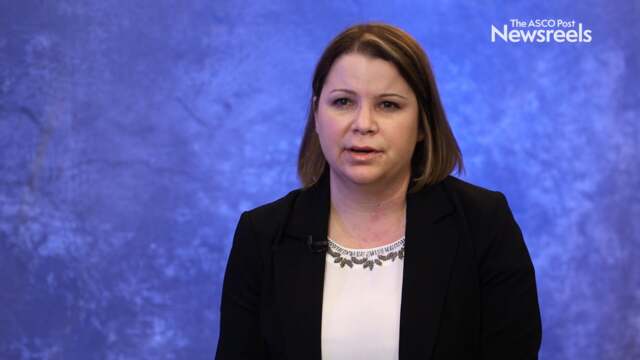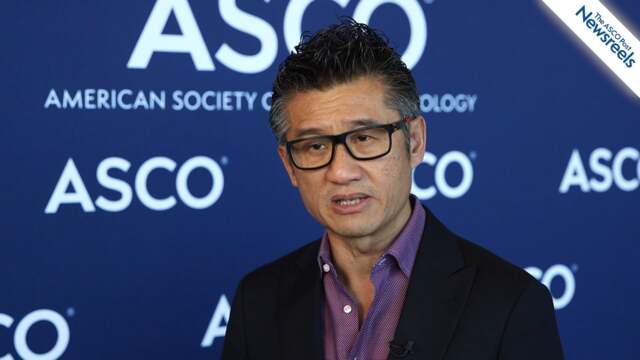Raymond U. Osarogiagbon, MBBS, on NSCLC: A Lymph Node Collection Kit
2018 ASCO Annual Meeting
Raymond U. Osarogiagbon, MBBS, of Baptist Cancer Center, discusses a kit used in non–small cell lung cancer resection that improves staging quality and overall survival without adding to morbidity of curative surgery (Abstract 8502).
Juliet Elizabeth Wolford, MD, on Ovarian Cancer: The Cost of Care
Juliet Elizabeth Wolford, MD, of the University of California, Irvine, discusses the cost-effectiveness of various types of maintenance therapy in advanced ovarian cancer: paclitaxel, bevacizumab, niraparib, rucaparib, olaparib, and pembrolizumab (Abstract 5508).
Geertjan Van Tienhoven, MD, PhD, of the Dutch Pancreatic Cancer Group, discusses phase III study findings on preoperative chemoradiotherapy vs immediate surgery for resectable and borderline resectable pancreatic cancer (Abstract LBA4002).
Tony Mok, MD, of the Chinese University of Hong Kong, discusses study findings on dacomitinib vs gefitinib for first-line treatment of advanced non–small cell lung cancer, a final overall survival analysis.
Julie M. Vose, MD, MBA, of the University of Nebraska Medical Center, and Nathan Hale Fowler, MD, of The University of Texas MD Anderson Cancer Center, discuss phase III study findings on lenalidomide plus rituximab vs chemotherapy plus rituximab, followed by rituximab maintenance, in patients with previously untreated follicular lymphoma (Abstract 7500).
Sumanta K. Pal, MD, of the City of Hope, and Neeraj Agarwal, MD, of the Huntsman Cancer Institute, University of Utah, discuss the ongoing phase III Talapro-2 study of talazoparib with background enzalutamide in metastatic castration-resistant prostate cancer with DNA damage–repair deficiencies (Abstract TPS5091).





